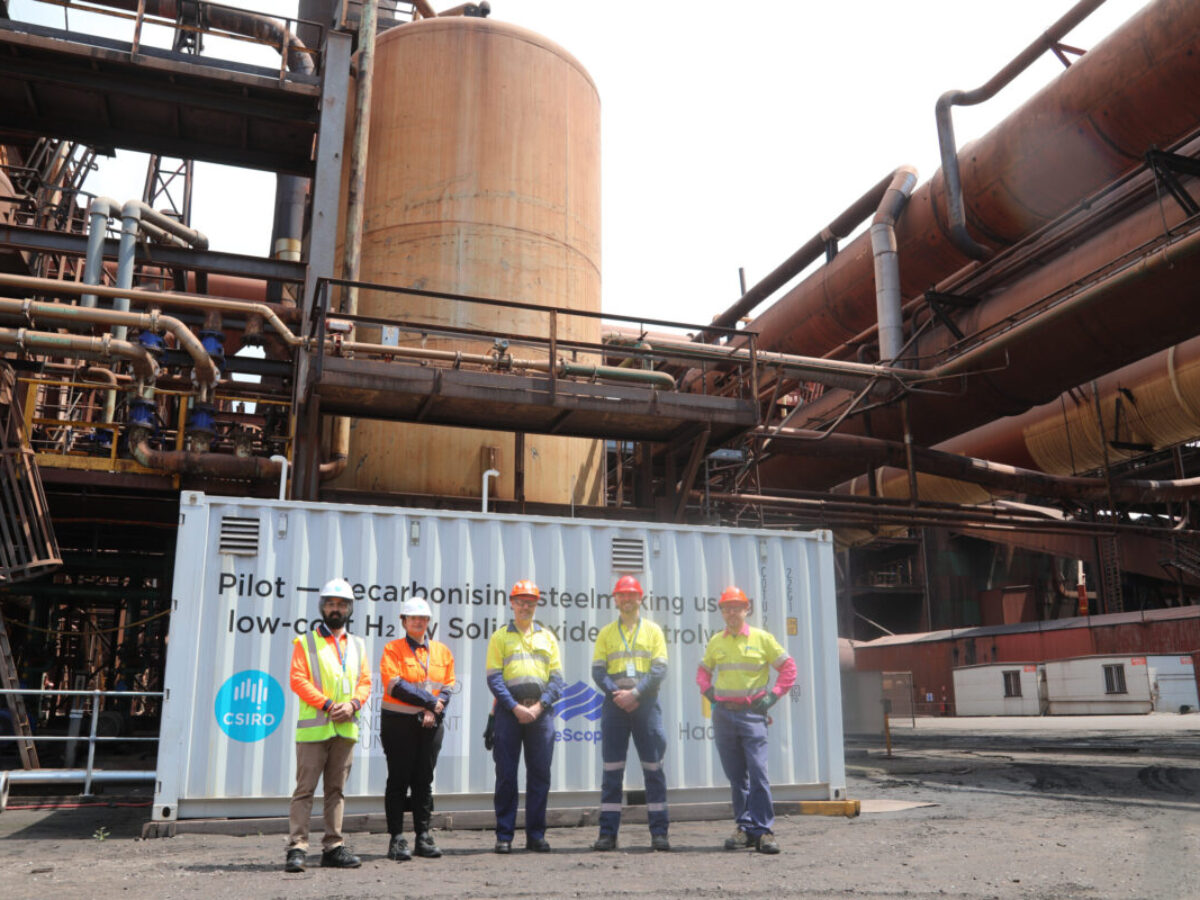Novel hydrogen production tech from CSIRO passes 1,000-hour mark at BlueScope

A CSIRO-developed tubular solid oxide electrolysis (SOE) system for generating hydrogen began operation at BlueScope Steel’s Port Kembla Steelworks in October, and has passed 1,000 hours of operation, according to the nation’s scientific agency.
In a statement on Thursday, CSIRO said the system differs from water-splitting electrolysis machines – which separate water into hydrogen and oxygen using electricity – in that it can efficiently produce hydrogen using either waste heat or electricity.
It is able to create a kilogram of hydrogen using electrical input of under 36 kilowatt hours, from steam created in the steelmaking process, said Dr Sarb Giddey, a Senior Principal Research Scientist at CSIRO.
Giddey is also leader of CSIRO’s Thermal and Electrochemical Technologies Group, as well as Chief Scientist and co-founder of hydrogen startup Endua.
“Since electricity takes up the lion’s share of variable production costs for renewable hydrogen, a substantial reduction in the electricity required (up to 30 per cent saving) for hydrogen production could be a game changer for the nascent hydrogen industry,” added Giddey.
“Taking a new technology out of the lab and into the field can highlight unforeseen challenges, so we are delighted to see that our technology is meeting the performance requirements in terms of hydrogen production, electrical efficiency and reliability.”
Hadean Energy – a CSIRO spinout business – is also a licensee of the SOE technology
Chris Rowland, CEO of Hadean, hailed the 1000-hour milestone as validating the technology in a real-world industrial setting, “increasing the technology readiness level to prepare for commercialisation.”
Chris Page, Head of Future Technologies, said the pilot project has demonstrated positive outcomes in its short-term operation, “and we look forward to seeing it evolve”.
CSIRO’s website describes tubular SOE as “electrolysing water using a combination of heat and electricity” and offering a 30 per cent electricity saving against polymer electrolyte membrane electrolysers. It claims a mid-stage Technology Readiness Level (TRL,) between 5 and 7.
The R&D project has been supported through a Science and Industry Endowment Fund grant, has a total budget of $3.8 million, and has a planned duration of four months.
Picture: supplied
Further reading
CSIRO launches green hydrogen tech startup
Hydrogen energy company Endua raises $11.8 million
Is BlueScope making a mistake betting on blast furnaces in a green steel era?
UoW, BlueScope announce $4.2 million to investigate ores in lower-carbon ESF steelmaking
@aumanufacturing Sections
Analysis and Commentary Awards casino reviews Defence Gambling Manufacturing News Online Casino Podcast Technology Videos





